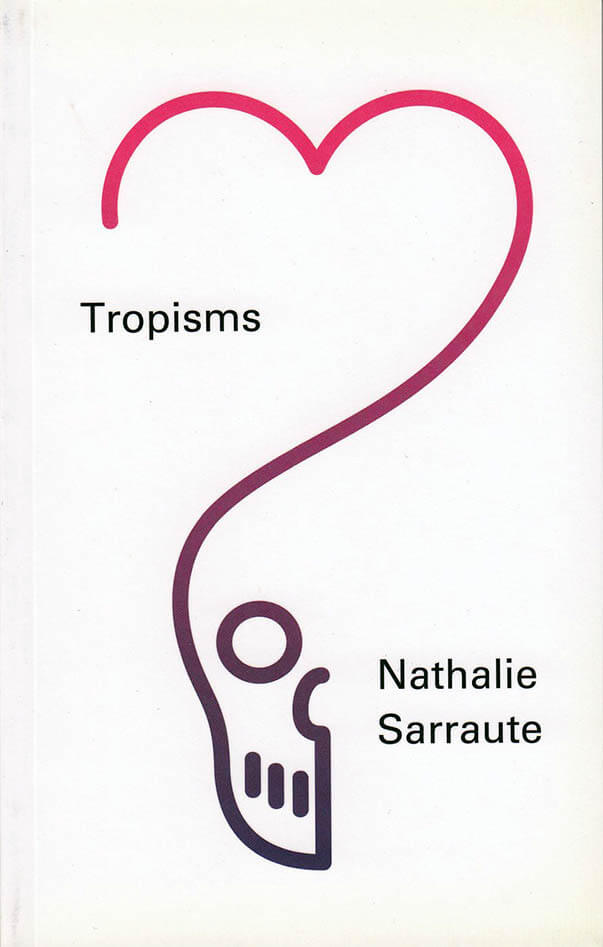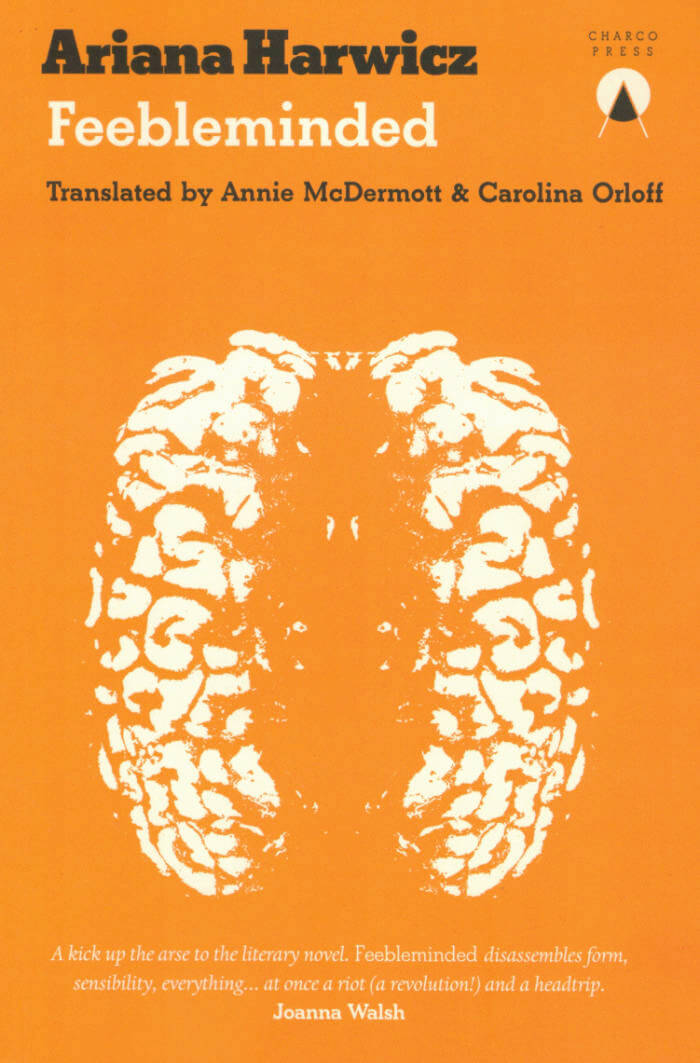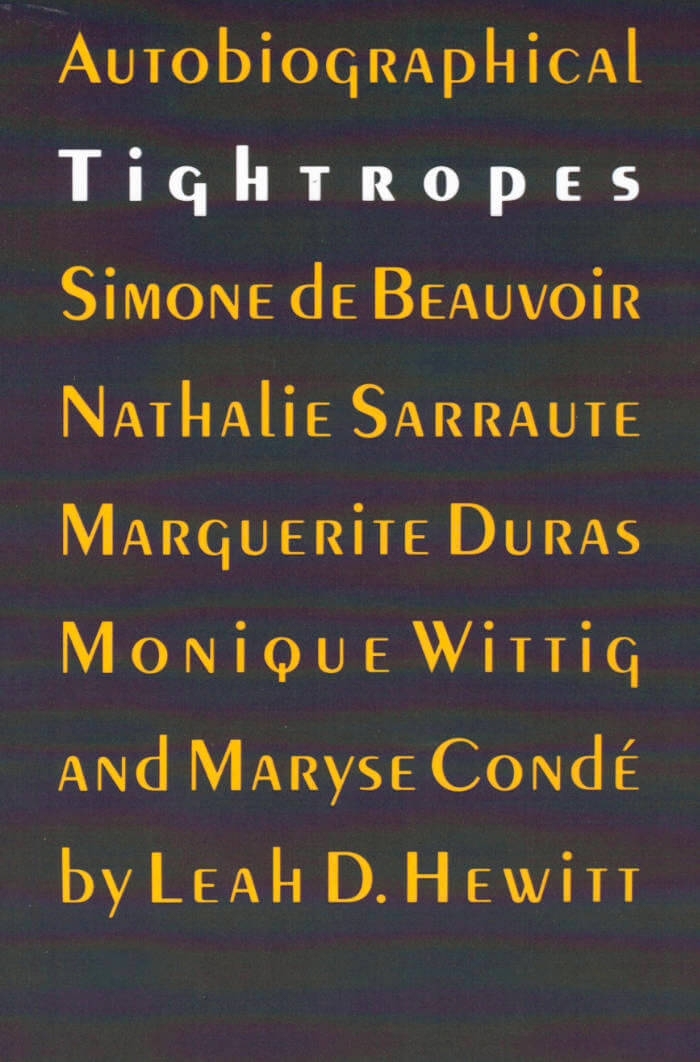Nathalie Sarraute
Nathalie Sarraute

The Planetarium
A young writer has his heart set on his aunt's large apartment. With this seemingly simple conceit, the characters of The Planetarium are set in orbit and a galaxy of argument, resentment, and bitterness erupts. Telling the story from various points of view, Sarraute focuses below the surface, on the emotional lives of the characters in a way that surpasses even Virginia Woolf. Always deeply engaging, The Planetarium reveals the deep disparity between the way we see ourselves and the way others see us.
The author of eleven novels, three works of criticism, a collection of plays, and an autobiography, Nathalie Sarraute (1900-1999) is well-known as one of the prime proponents of the New Novel, alongside Alain Robbe-Grillet, Robert Pinget, and Claude Simon. Among her books are Do You Hear Them?, Martereau, Portrait of a Man Unknown, Between Life and Death, and Tropisms.

Tropisms
Nathalie Sarraute's Tropisms is considered one of the defining texts of the nouveau roman movement. Tropisms was championed as a masterpiece by Jean Genet, Marguerite Duras, and Jean-Paul Sartre, who hailed Sarraute as his favorite "anti-novelist." Sarraute defined her Tropisms as the "movements that are hidden under the commonplace, seemingly harmless instances of our everyday lives." Like figures in a grainy and shadowy photo, the characters in Tropisms are barely defined, the narrative never developed beyond a stressed moment. Instead, Sarraute brilliantly highlights the shift in tone through remarks or subtle details when a relationship changes, when we fall slightly deeper into or begin to emerge out of love or trust, or when something innocent tilts by the smallest degree toward suspicion.
Tropisms—something like 'prose poems'—as Sarraute calls them that— this is her form! Her texture is anti-novelistic, though she's decided to write 'novels' and launched an important critique of the novel on the basis of her method.—Susan Sontag
Translated by Maria Jolas.
Published 2015.
And more

Die, My Love
In a forgotten patch of French countryside, a woman is battling her demons embracing exclusion yet wanting to belong, craving freedom whilst feeling trapped, yearning for family life but at the same time wanting to burn the entire house down. Given surprising leeway by her family for her increasingly erratic behaviour, she nevertheless feels ever more stifled and repressed. Motherhood, womanhood, the banality of love, the terrors of desire, the inexplicable brutality of another person carrying your heart forever Die, My Love faces all this with a raw intensity. It s not a question of if a breaking point will be reached, but rather when and how violent a form will it take?
A manic, bruising stream of conscious portrayal of a mother and wife struggling to maintain both a normal life and her sanity.
Compared to Nathalie Sarraute and Virginia Woolf, Ariana Harwicz is one of the most radical figures in contemporary Argentinian literature. Her prose is characterised by its violence, eroticism, irony and criticism of the clichés surrounding the notions of the family and conventional relationships. Born in Buenos Aires in 1977, Harwicz studied screenwriting and drama in Argentina, and earned a degree in Performing Arts from the University of Paris VII as well as a Master's in comparative literature from the Sorbonne. She has taught screenwriting and written plays, which have been staged in Buenos Aires. Feebleminded (which has also been adapted for the stage in Argentina and Spain) is her second novel and a sequel in an 'involuntary' trilogy, preceded by Die, My Love (Charco Press, 2017) and followed by Precocious. Her fourth novel, Degenerate comes out in June 2019. Die, My Love was longlisted for the Man Booker International Prize (2018) and shortlisted for the Republic of Consciousness Prize (2018). It has been translated into more than ten languages.

Feebleminded
The unraveling of a mother/daughter relationship that is at once chaotic, loving, and mercilessly destructive.
Following the international success of Die, My Love (longlisted for the Man Booker International Prize 2018), Ariana Harwicz again takes us into the darkest recesses of the imagination with this delirious, furious account of a mother and daughter bound by chaos as much as love. Driven to the edge by the men in their lives, they oscillate between erratic bursts of housework, lazing in the garden, and drunken escapades. But is the constant undercurrent of violence all in the daughter's mind or will they actually go through with their plan for revenge? With a shocking, edge-of-the-seat finale worthy of Thelma & Louise if it were remade by David Lynch, Feebleminded is a wild ride of a novel with echoes of Ágota Kristóf, Elfriede Jelinek and Alan Warner, and will leave you both shaken and begging for more.
Compared to Nathalie Sarraute and Virginia Woolf, Ariana Harwicz is one of the most radical figures in contemporary Argentinian literature. Her prose is characterised by its violence, eroticism, irony and criticism of the clichés surrounding the notions of the family and conventional relationships. Born in Buenos Aires in 1977, Harwicz studied screenwriting and drama in Argentina, and earned a degree in Performing Arts from the University of Paris VII as well as a Master's in comparative literature from the Sorbonne. She has taught screenwriting and written plays, which have been staged in Buenos Aires. Feebleminded (which has also been adapted for the stage in Argentina and Spain) is her second novel and a sequel in an 'involuntary' trilogy, preceded by Die, My Love (Charco Press, 2017) and followed by Precocious. Her fourth novel, Degenerate comes out in June 2019. Die, My Love was longlisted for the Man Booker International Prize (2018) and shortlisted for the Republic of Consciousness Prize (2018). It has been translated into more than ten languages.

Tender
The third and final installment of Ariana Harwicz's Involuntary Trilogy finds us on familiar, disquieting ground. Under the spell of a mother's madness, the French countryside transforms into a dreamscape of interconnected imagery: animals, desire, the functions of the body. Most troublingly: the comfort of a teenage son. Scorning the bourgeois mores and conventionality of their small town, she withdraws him from school and the two embark on ever more antisocial and dangerous behavior. Harwicz is at her best here, building an interior world so robust, and so grotesque, that it eclipses our shared reality. Savage, and savagely funny, she leaves us singed, if not scorched.
Compared to Nathalie Sarraute and Virginia Woolf, Ariana Harwicz is one of the most radical figures in contemporary Argentinian literature. Her prose is characterised by its violence, eroticism, irony and criticism of the clichés surrounding the notions of the family and conventional relationships. Born in Buenos Aires in 1977, Harwicz studied screenwriting and drama in Argentina, and earned a degree in Performing Arts from the University of Paris VII as well as a Master's in comparative literature from the Sorbonne. She has taught screenwriting and written plays, which have been staged in Buenos Aires. Feebleminded (which has also been adapted for the stage in Argentina and Spain) is her second novel and a sequel in an 'involuntary' trilogy, preceded by Die, My Love (Charco Press, 2017) and followed by Precocious. Her fourth novel, Degenerate comes out in June 2019. Die, My Love was longlisted for the Man Booker International Prize (2018) and shortlisted for the Republic of Consciousness Prize (2018). It has been translated into more than ten languages.
Translated by Carolina Orloff and Annie McDermott.

Autobiographical Tightropes
"In order to write" said Simone de Beauvoir, "the first essential condition is that reality can no longer be taken for granted."
She and four other French women writers of the second half of the twentieth century-Nathalie Sarraute, Marguerite Duras, Monique Wittig, and Maryse Condé-illustrate that producing autobiography is like performing a tightrope act on the slippery line between fact and fiction.
Autobiographical Tightropes emphasizes the tension in the works of these major writers as they move in and out of "experience" and "literature," violating the neat boundaries between genres and confusing the distinctions between remembering and creating.
Focusing on selected works, Leah D. Hewitt for the first time anywhere explores the connections among the authors. In doing so she shows how contemporary women's autobiography in France links with feminist issues, literary tradition and trends, and postmodern theories of writing. In light of these theories Hewitt offers a new reading of de Beauvoir's memoirs and reveals how her attempt to represent the past faithfully is undone by irony, by literary and "feminine" detours. Other analysts of Nathalie Sarraute's writing have dwelt mainly on formal considerations of the New Novel, but Hewitt exposes a repressed, forbidden feminine aspect in her literary innovations. Unlike Sarraute, Duras cannot be connected with just one literary movement, political stance, style, or kind of feminism because her writing, largely autobiographical, is marked by chameleon like transformations.
The chapters on Wittig and Condé show how, within the bounds of feminism, lesbians and women of color challenge the individualistic premises of autobiography. Hewitt demonstrates that, despite vast differences among these five writers, all of them reveal in their autobiographical works the self's need of a fictive other. Leah D. Hewitt is an associate professor of French at Amherst College.